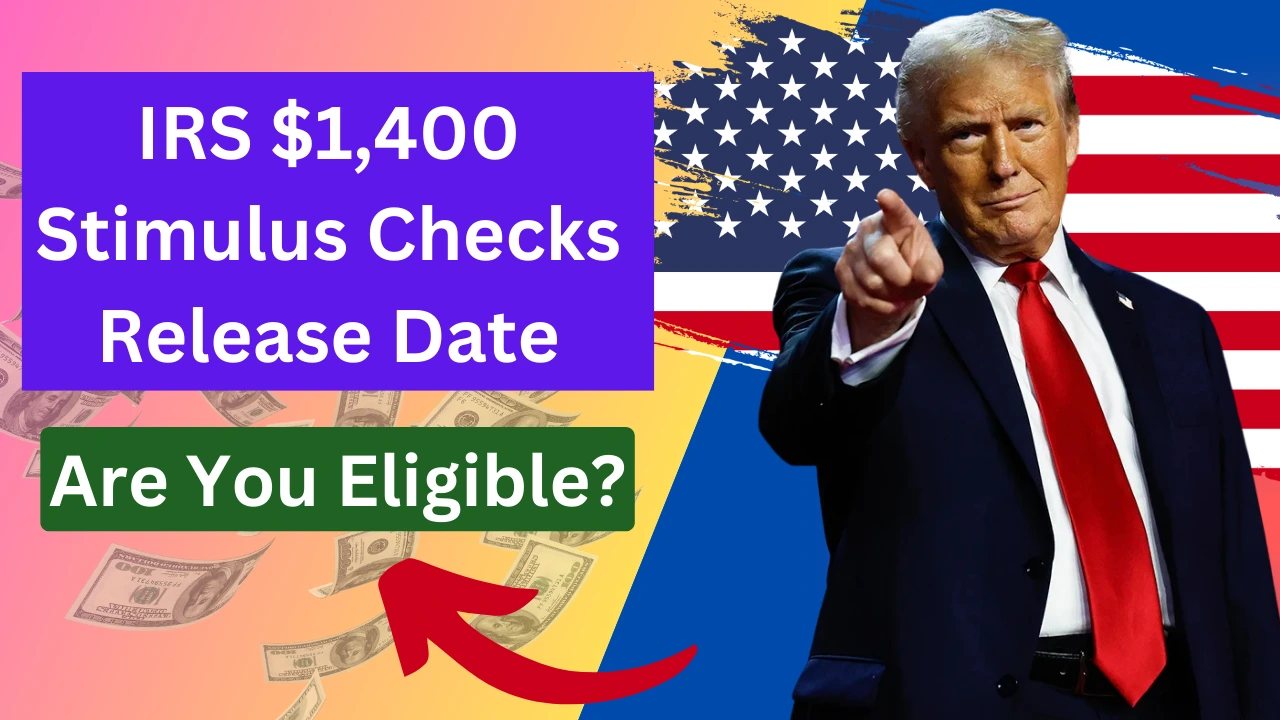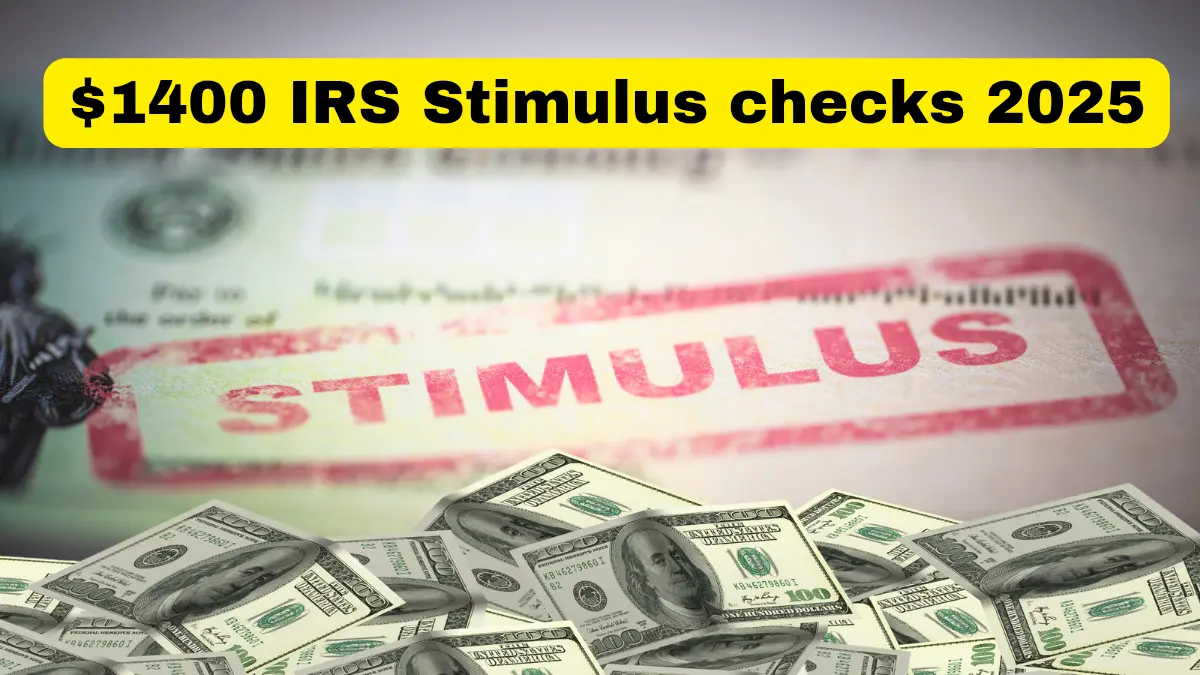Let’s cut straight to the chase, folks. The 1400 stimulus checks IRS has been dishing out have been a lifeline for millions of Americans grappling with the financial fallout of the pandemic. Whether you’re anxiously waiting for your check or wondering if you qualify, this is the ultimate guide you’ve been looking for. Buckle up, because we’re diving deep into the nitty-gritty of stimulus checks, IRS rules, and everything in between!
Now, before we get into the thick of things, let’s set the scene. The coronavirus pandemic hit hard, leaving countless people out of work, struggling to pay bills, and wondering how they’d make ends meet. In response, the government stepped up with not one, not two, but three rounds of stimulus checks. The latest round, the $1400 stimulus check, was part of the American Rescue Plan, and it’s been making headlines ever since.
But here’s the deal—getting your hands on that sweet stimulus cash isn’t always straightforward. There’s a lot of confusion out there about who qualifies, how the IRS decides, and what to do if you haven’t received your check yet. That’s where we come in. This article is your go-to resource for all things stimulus-related, breaking down the details in a way that’s easy to understand and super actionable. So, let’s get started!
Read also:Winona Ryder Bjork A Unique Exploration Of Two Icons
What Are the 1400 Stimulus Checks IRS All About?
Alright, so what exactly are these $1400 stimulus checks all about? Simply put, they’re part of a massive economic relief package designed to help individuals and families weather the economic storm brought on by the pandemic. The IRS is tasked with distributing these checks based on specific criteria, which we’ll break down for you in just a sec.
But why $1400, you ask? Well, it’s all part of a larger plan to inject cash into the economy, stimulate spending, and provide much-needed relief to those who need it most. The idea is that by putting money directly into people’s pockets, they’ll be able to pay for essentials like rent, groceries, and utilities, keeping the economy afloat during these tough times.
Who Qualifies for the 1400 Stimulus Checks?
Qualifying for the $1400 stimulus check isn’t as simple as just being an American citizen. There are some rules you need to follow, and here’s the scoop:
- Individuals earning up to $75,000 per year qualify for the full amount.
- Married couples earning up to $150,000 combined also get the full amount.
- For every $100 over those limits, the payment decreases by $5, phasing out completely at higher income levels.
- Dependents, including adult dependents, also count toward the total payment.
So, if you’re within the income limits and meet the other criteria, congrats—you’re in the running for that sweet stimulus cash!
How Does the IRS Determine Eligibility?
The IRS uses your tax returns to figure out if you qualify for the $1400 stimulus check. Here’s how it works:
They’ll look at your most recent tax return—either 2019 or 2020—to determine your Adjusted Gross Income (AGI). If your AGI falls within the qualifying range, you’re good to go. But here’s the kicker—if you haven’t filed your 2020 taxes yet, they’ll use your 2019 return instead. So, if you’ve had a big change in income, it might affect how much you get.
Read also:Cool Cortes De Pelo Con Rayitos The Ultimate Guide For Stylish Looks
What If You Haven’t Received Your Check Yet?
If you’re still waiting for your $1400 stimulus check, don’t panic. There are a few reasons why it might be delayed:
- Your bank details might be incorrect or outdated.
- You might need to update your information with the IRS.
- There could be a processing delay due to the sheer volume of checks being sent out.
But here’s the good news—the IRS has a tool called “Get My Payment” that lets you track the status of your check. It’s super easy to use, and it’ll give you an estimated timeline for when you can expect your money.
Understanding the IRS Payment Process
Now, let’s talk about how the IRS actually gets the money to you. There are a few different ways they distribute the $1400 stimulus checks:
- Direct deposit: This is the fastest method, and it’s what most people will receive.
- Physical checks: If the IRS doesn’t have your bank info, they’ll send a paper check in the mail.
- Economic Impact Payment (EIP) cards: Some people will receive a prepaid debit card instead of a check.
Each method has its own pros and cons, but the goal is to get the money into your hands as quickly and efficiently as possible. Just be sure to keep an eye on your mail and bank account so you don’t miss it!
Tips for Receiving Your Stimulus Check Faster
Want to make sure you get your $1400 stimulus check ASAP? Here are a few tips:
- Double-check your bank info with the IRS to ensure it’s up to date.
- File your 2020 taxes as soon as possible if you haven’t already.
- Use the “Get My Payment” tool to track your check and ensure everything’s on track.
By taking these steps, you’ll increase your chances of getting your money faster and avoiding any unnecessary delays.
Common Questions About the 1400 Stimulus Checks
Let’s tackle some of the most common questions people have about the $1400 stimulus checks:
Do You Have to Pay Taxes on the Stimulus Check?
Short answer: nope! The $1400 stimulus check is not considered taxable income, so you don’t have to worry about paying taxes on it. It’s essentially a gift from the government to help you through tough times.
What If You Have Dependents?
If you have dependents, you’re in luck! Each dependent you claim on your taxes qualifies for an additional $1400. That means if you have three kids, you could potentially receive a total of $5600 in stimulus payments. Not too shabby, right?
What Happens If You Don’t Receive the Full Amount?
If you believe you should have received a larger stimulus payment than you did, you can file a Recovery Rebate Credit when you file your 2021 taxes. This will allow you to claim the difference and get the full amount you’re entitled to.
The Economic Impact of Stimulus Checks
Now, let’s zoom out and look at the bigger picture. How are these $1400 stimulus checks affecting the economy as a whole?
Well, the idea is that by putting money directly into people’s pockets, they’ll spend it on essentials like groceries, rent, and utilities, which in turn boosts the economy. Early data suggests this is exactly what’s happening—consumer spending has increased, and businesses are starting to see a rebound.
Will There Be More Stimulus Checks in the Future?
That’s the million-dollar question, isn’t it? While there’s no official word yet on whether there will be another round of stimulus checks, many experts believe it’s possible, especially if the economic recovery stalls or if there’s another wave of the pandemic.
So, keep your eyes peeled and stay informed. The best way to stay up to date is to follow reliable news sources and keep an eye on official government announcements.
How to Use Your Stimulus Check Wisely
Now that you’ve got your $1400 stimulus check (or are waiting for it), what’s the best way to use it? Here are a few ideas:
- Pay off high-interest debt: If you have credit card debt or other high-interest loans, now’s a great time to knock some of that off.
- Build an emergency fund: Having a financial safety net is more important than ever, so consider setting aside some of your stimulus cash for a rainy day.
- Invest in yourself: Whether it’s taking a course, buying tools for your side hustle, or upgrading your home office, investing in yourself can pay dividends in the long run.
Of course, if you’re struggling to make ends meet, using the money for essentials like food, rent, and utilities is totally okay too. The key is to use it in a way that makes the most sense for your unique situation.
Conclusion: Take Action Now!
So, there you have it—the lowdown on the 1400 stimulus checks IRS is handing out. Whether you’re waiting for your check, wondering if you qualify, or figuring out how to use the money wisely, we hope this guide has been helpful.
But here’s the thing—knowledge is power, and now that you’re armed with the facts, it’s time to take action. Check your eligibility, update your info with the IRS, and start planning how you’ll use your stimulus cash to improve your financial situation.
And don’t forget to share this article with your friends and family who might find it useful. The more people who understand how the stimulus checks work, the better off we’ll all be. So, go ahead and hit that share button, and let’s keep the conversation going!
Table of Contents
- What Are the 1400 Stimulus Checks IRS All About?
- Who Qualifies for the 1400 Stimulus Checks?
- How Does the IRS Determine Eligibility?
- What If You Haven’t Received Your Check Yet?
- Understanding the IRS Payment Process
- Tips for Receiving Your Stimulus Check Faster
- Common Questions About the 1400 Stimulus Checks
- Do You Have to Pay Taxes on the Stimulus Check?
- What If You Have Dependents?
- What Happens If You Don’t Receive the Full Amount?
- The Economic Impact of Stimulus Checks
- Will There Be More Stimulus Checks in the Future?
- How to Use Your Stimulus Check Wisely


